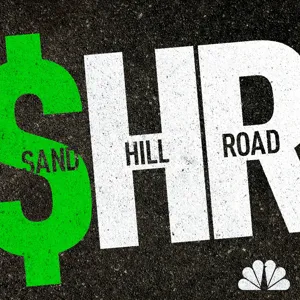Podcast Summary
SPACs: From Hype to Regulation: Despite their popularity, SPACs have faced numerous bankruptcies and investors should approach them with caution, staying informed about regulatory changes and market trends.
Special Purpose Acquisition Companies (SPACs), which are a way for private companies to go public through a backdoor method, gained immense popularity during the early stages of the pandemic but have since faced numerous bankruptcies. With over 20 companies going bankrupt last year, including new startups and household names, US stock regulators have issued new rules to make SPACs safer. The hype around SPACs reached an all-time high with the release of the song "Spack Dream" by an Oakland rapper, Cassius Cuvee, expressing his love for the investment trend. However, the bubble eventually burst due to the high-risk nature of these investments, leaving many investors with significant losses. It's crucial to approach SPACs with caution and stay informed about regulatory changes and market trends.
Alternatives to IPO for Going Public: Special Purpose Acquisition Companies (SPACs): SPACs are shell companies with cash that merge with private firms to bring them public, offering less uncertainty, red tape, expense, and time compared to IPOs.
Companies looking to go public have alternatives to the traditional Initial Public Offering (IPO) route, such as Special Purpose Acquisition Companies (SPACs). Unlike IPOs, which require a company to have real operations and go through an expensive, cumbersome, and risky process to hire investment banks, jump through regulatory hoops, and make public disclosures, SPACs are just shell companies with cash and no business operations. Their sole mission is to merge with a private company to bring it to public status. SPACs are sponsored by financiers, often from the hedge fund world, who list the SPAC on a stock exchange and then search for a private company to merge with. This method can offer less uncertainty, less red tape, less expense, and potentially less time compared to the IPO process.
SPACs: A Modern Alternative to Traditional IPOs: During the pandemic, SPACs became a popular alternative to traditional IPOs, allowing companies to go public through a merger with a SPAC. Despite their questionable past, low interest rates and hype led to a surge in SPAC-merged companies, but new regulations and high-profile failures emerged by 2022.
Special Purpose Acquisition Companies (SPACs) have seen a significant surge in popularity during the pandemic, allowing companies to bypass traditional IPOs and go public through a merger with a SPAC. SPACs raise funds by issuing shares to investors, and sponsors have about two years to find a target company for merger. Once the merger is completed, the target company takes the SPAC's place on the stock exchange and receives a new ticker symbol. Historically, SPACs have had a questionable reputation due to past fraud cases in the 1980s. However, the pandemic brought about a boom in the SPAC market, with over 360 companies going public through SPAC mergers during the first couple of years, compared to the entire decade prior. Reasons for this surge include pandemic disruptions making traditional IPOs more difficult, low interest rates, and hype from big name investors and celebrities. However, by 2022, cracks in the SPAC market had begun to show, leading to new regulations from the Securities and Exchange Commission and some high-profile failures or bankruptcies of SPAC-merged companies, such as WeWork.
SPACs: Questionable Deals and Incentive Misalignment: Critics argue SPAC sponsors prioritize deal-making over shareholder value due to pressure to secure mergers within two years, potentially leading to questionable deals and investor losses.
Special Purpose Acquisition Companies (SPACs) have been a topic of intense debate due to their lack of regulatory scrutiny compared to Initial Public Offerings (IPOs) and the potential misalignment of incentives for the players involved. Critics argue that SPAC sponsors are under pressure to secure mergers within two years, leading them to prioritize deal-making over shareholder value and profitability. This desperation for a merger can result in questionable deals, leaving some investors holding the bag when things go south. During the pandemic, the SPAC market became overheated, leading to a surge in deals that may not have been profitable or sustainable. While not all voices share this perspective, the potential risks associated with SPACs are a valid concern for investors.
SPACs: A Legitimate Alternative to Traditional IPOs: New SEC rules increase transparency and limit promises in SPACs, making them a more attractive investment option for private companies and investors
SPACs, or Special Purpose Acquisition Companies, are not inherently bad according to Christie. Instead, she views them as a legitimate alternative to traditional Initial Public Offerings (IPOs). The new SEC rules aimed at increasing transparency and limiting promises made to potential investors will go into effect soon, but Christie remains optimistic about the future of SPACs. She hopes for more SPAC wraps in the future as they provide investment opportunities. In the world of finance, Mint Mobile offers an opportunity to save on wireless bills with unlimited talk, text, and data plans for $15 a month when purchasing a 3-month plan. Meanwhile, Fundrise's flagship fund plans to expand its real estate portfolio due to high interest rates, making real estate assets more accessible at discounted valuations. Christie also emphasized that SPACs undergo rigorous regulatory scrutiny, and the new SEC rules will only increase transparency. The rules aim to prevent SPACs from making overly optimistic statements about their future financial performance and require more disclosures about their business operations. Overall, while there are risks associated with SPACs, they can provide valuable investment opportunities, especially for private companies looking to go public. The new SEC rules will bring more transparency and accountability to the SPAC market, making it a more attractive option for investors.






